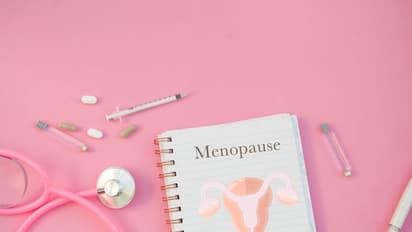Here 7 early signs of menopause you should watch out for
Published : May 22, 2023, 04:03 PM IST
Your ovaries generate less progesterone and oestrogen as you get older. These are some signs of menopause so that you can manage your body accordingly-- By Anushri Bokade
Explore the latest Lifestyle News covering fashion, wellness, travel, Food and Recipes, and more. Stay updated with trending Health News, fitness tips, and expert insights to inspire your daily living. Discover personalized lifestyle trends that keep you stylish and informed. Download the Asianet News Official App from the Android Play Store and iPhone App Store for everything that adds value to your everyday life.
